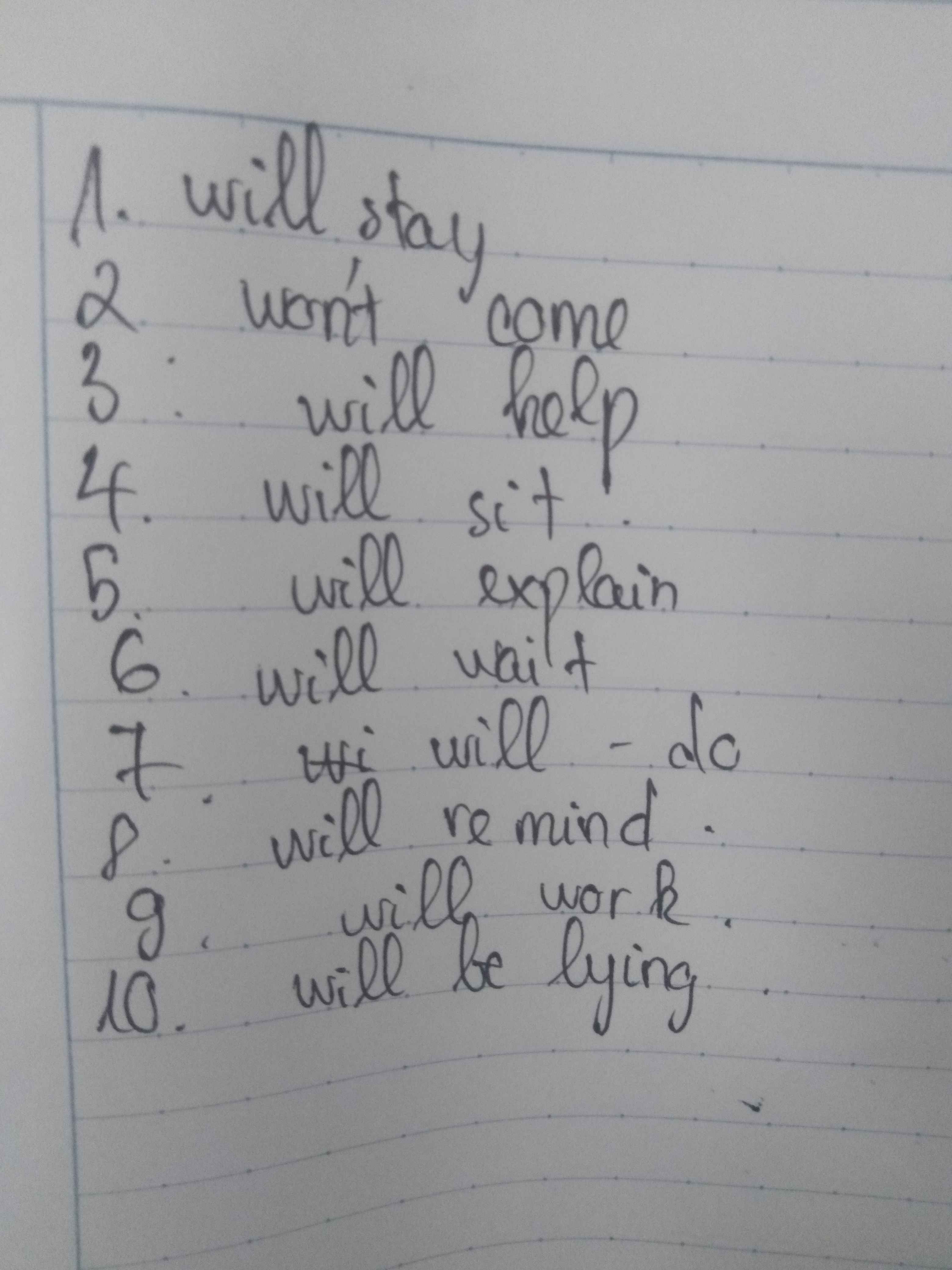Put the verbs in brackets in the future simple or future continuous.
1. Please don’t call me after 3 p.m. I___________ (have) a F2F meeting.
2. You are so late! Everybody___________ (work) when you arrive at the office.
3. I___________ (finish) my homework before I go out tonight.
4. “What the hell? I can’t read this message.” - “Don’t be so serious! I___________ (decode) it”.
5. The company___________ (hold) a video conference at 9:00 next Tuesday.
6. We___________ (call) you as soon as we arrive at the airport.
7. I wish I could visit you, but I___________ (manage) a very important project.
8. I suppose the weather___________ (be) better tomorrow.
9. “Can I borrow your car?” - “Sure, I___________ (not use) it until Friday.”
10. Promise me you___________ (not call) before 10; I hate being woken up early!
11. This time on Friday we. ___________ (take) a history exam.
12. ___________ (you/ go) to bed when I return?
13. You can’t meet me at the supermarket. I___________ (not shop) in the afternoon.
14. Do you think people___________ (communicate) by thought someday?
15. ___________ (everyone/ use) smart phones by the end of this century?
VII. Supply the correct form of the words in brackets.
1. Notice how the student responds___________ and through body language. (verbalize)
2. Email features___________ , whereas snail mail represents tradition. (modern)
3. A three-___________ object can be measured in three different directions. (dimension)
4. Message boards can be ___________ teaching tools. (interact)
5. They have been together so long they have a___________ understanding. (telepathy)
6. ___________ communication is often described as ‘body language’. (verbal)
7. There are many cultural___________ between Vietnam and the us. (differ)
8. Waving his hand to me, he___________ me to come join him. (sign)
9. A___________ language is a language produced by sounds, as opposed to a written
language. (speak)
10. By paying attention to your storytelling and body language, you can become a more
effective___________. (communicate)


Put the verbs in brackets into the future continuous or the future perfect
1. A: I can’t come shopping on Saturday morning because I …will / ‘ll be working... (work).
B: That’s a pity.
2. A: Don’t phone me later than midnight because I …will / 'll sleeping….…… (sleep) then.
B: Shall I give you a call at about 10:30, then?
3. A: Come to my house at six o’clock.
B: ……Will you finish………… (you / finish) your homework by then?
4. A: Have you made the preparations for the party?
B: Not yet, but I …………wil / 'll finish…………….... (finish) them by this evening.
5. A: …………will you go…………….... (you / go) to James’ party on Saturday night?
B: Yes.
A: Would you mind giving me a lift?
6. A: There’s a meeting tomorrow at 4 o’clock.
B: I can’t go if it is that late. I ……………will / 'll leaving……….... (leave) by then.
1. A: I can’t come shopping on Saturday morning because I …will / ‘ll be working... (work).
B: That’s a pity.
2. A: Don’t phone me later than midnight because I …………will be sleeping……………………….…… (sleep) then.
B: Shall I give you a call at about 10:30, then?
3. A: Come to my house at six o’clock.
B: ………Will you have finished…………………………………………… (you / finish) your homework by then?
4. A: Have you made the preparations for the party?
B: Not yet, but I …………will have finished………………………………………….... (finish) them by this evening.
5. A: …………………Will you be going ………………………………….... (you / go) to James’ party on Saturday night?
B: Yes.
A: Would you mind giving me a lift?
6. A: There’s a meeting tomorrow at 4 o’clock.
B: I can’t go if it is that late. I …………will have left ………………………………………….... (leave) by then.